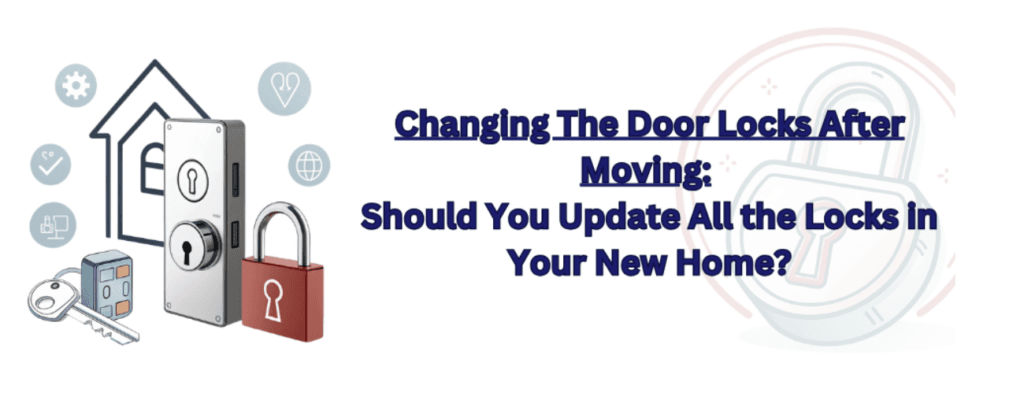Moving into a new home is stressful. All the packaging and transporting can be too much to handle, so many people just wish it was over so they can finally settle and forget about it. That’s why so many people wonder if they should even bother with changing the door locks.
While all of this is understandable, you really should pay attention to security. It seems like a minor issue at first, but it can ensure the safety of your family and belongings.
 Why Is replacing locks necessary?
Why Is replacing locks necessary?
You cannot be 100% sure who had access to your new home’s keys before you moved in. The list is potentially huge: from previous owners and landlords to their relatives, friends, or even contractors. Each one of these people could have kept duplicates of the key, and even if the seller or landlord assures you that all copies have been handed over, there’s always a risk.
Scenarios that warrant lock replacement:
- When you move into a house or apartment previously occupied by someone else.
- If the property underwent construction or renovations before your move.
- When the property was rented out and you don’t know the full history of the previous tenants.
- If keys were lost during the moving process.
Pros and cons of replacing all the locks
Replacing all the locks can feel excessive and costly, even if it ensures your safety. That’s why it’s important to weigh both the costs and the long-term advantages.
Advantages of replacing locks
- Peace of mind. You can be confident that no one else has access to your home.
- Upgrade opportunity. Replacing locks gives you a chance to install modern, high-security locks with anti-pick features or even smart locks.
- Reduced risk of break-ins. If your new property has a history of burglaries or other incidents, new locks can increase security and bring a sense of safety.
Disadvantages
- Costs. Hiring professionals like a London locksmith as well as buying new locks can be somewhat expensive.
- Potential inconvenience. If you have a large family, you’ll need to create a new set of keys for everyone.
What Type of Locks Should You Choose?
If you decide to replace your locks, selecting the right type is crucial. Here are some of the most popular options:
Type of Lock | Advantages | Disadvantages |
Cylinder Lock | Easy to replace the cylinder, good security | Moderate resistance to tampering |
Mechanical Lock | Reliable, durable | Can be inconvenient for frequent use |
Electronic Lock | Smartphone integration, high versatility | High cost, dependent on power source |
Smart Lock | Compatible with “smart home” systems | Vulnerable to hacking via online access |
Your choice will depend on your specific needs, preferences, and budget.
When can you skip replacing locks?
In some cases, replacing all the locks may not be necessary. For example, if you’re moving into a brand-new home as the first owner, it is possible that only the builder has had access to the locks before you. However, even in this situation, contractors could duplicate the keys — unlikely, but not impossible. The good news is you don’t necessarily have to fully replace the locks if you’re concerned about security — rekeying them is an affordable alternative.
Tip! Security is not all about front and back doors. Pay attention to windows, balcony doors, and garages as well. If the property has a security system installed, ensure it is operational and updated for your use. If you’re unsure about anything, consult a professional.
How to Choose a Reliable Locksmith?
Lock replacement isn’t something you should try to do yourself — better leave it to experienced professionals with proper qualifications. Here’s what you should consider when choosing a locksmith:
- Licensing and certifications.
- Reviews and recommendations from previous customers.
- The variety of locks and services they offer.
- Transparency of their contracts and pricing.
Alternative: rekeying locks
Rekeying locks can be a decent alternative if you want to save money and your current locks are in good condition. Here’s how it works: the locksmith won’t replace the lock itself but rather alter its mechanism so that old keys won’t work anymore. It can be a less expensive option, although it won’t work with all lock types.
Securing your future
Replacing locks in your new home is not just a formality, so you should add it to your list of things to consider when moving. Deciding whether or not you should replace locks is up to you, but remember that peace of mind and your family’s security are priceless. If you’re uncertain about the best course of action, consult a professional who can recommend the best option.






